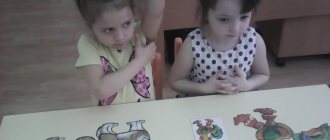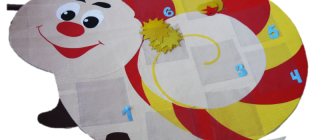Pantomime is a type of stage art known since ancient times and always popular, the main means of expression of which are the artist’s facial expressions and plasticity. Elements of pantomime are often found in folk dances, are common in modern acting and are widely used in training young artists in the art of acting on stage.
“Pantomime is the poetry of silence.” Joseph Michael Kreutzer.
The tasks facing a mime actor are, in essence, indistinguishable from the tasks of a dramatic actor. This:
- Creating a bright stage image.
- Continuous action in the fight against proposed circumstances.
- Emotional expressiveness and recognition.
The main difference is that the mime does not use speech, the absence of which is compensated by a variety of non-verbal expressive means - plasticity, facial expressions, and gestures.
Despite the grotesque and exaggerated nature of the gestural, facial and plastic techniques used in pantomime, they all come from life, from human emotional reactions and their physical expressions. That is why pantomime lessons are taught not only at the Faculty of Theater Arts, but also in areas not related to stage practice: from lessons in seducing girls to methods of investigation and diplomatic negotiations.
At the Benefis theater studio, great attention is paid to the art of pantomime. It is taught to both adults and children. Our teachers know that pantomime is a great way to master stage movement and plastic techniques. Our students explore the capabilities of their body and learn to convey their thoughts and emotions through gestures. The art of pantomime relieves psychological tension, develops reaction and balance, and increases joint mobility. This type of physical activity is very beneficial for both children and adults.
Choose the most suitable course for yourself. We conduct classes for adults and children in the center of Moscow.
learn more about the courses
Pantomime for children
Any modern children's pantomime theater in Moscow or theater group begins training little artists with pantomime. Most often, kids learn to pretend to be animals and play charades, when one child shows a certain scene, and the rest try to guess the word. The benefits of such exercises for child development are enormous, including:
- development of imagination
- developing the ability to correctly express emotions
- liberation and strengthening of self-esteem
- taste for creativity and creative thinking
- broadening your horizons and gaining valuable emotional experience
- development of communication skills and interaction with other children.
The pantomime game for children is suitable for any age and is recommended for home activities. This is a fun, exciting and exciting way to spend time usefully, which can replace your children's mindless sitting in front of a computer or TV screen. You can play comic pantomime games together or in a large group of children, at birthdays, Christmas trees, school matinees, or just every day in your free time.
Children's tasks
Funny tasks for pantomime can be of varying complexity, depending on the age of the child. For the youngest children (up to 4 years old), the option of simply repeating after adults is suitable. Children love to imitate their mothers and fathers, showing how they do the cleaning, prepare dinner, get ready for work, and so on. This is exactly what you should do with children, gradually complicating the tasks. You can invite children to depict various domestic and wild animals, inanimate objects (for example, transport), representatives of professions (for example, policeman, fireman, doctor), etc.
Choose games and competitions based on your child’s interests! The most important thing is to arouse his interest and taste for creativity.
Children 4–6 years old can quite use their imagination and come up with ideas for pantomime on their own; you only need to offer them simple topics. The child learns to remember what he usually does in different situations and reproduce small scenes from his own life.
Examples of topics:
- Seasons,
- kindergarten,
- in the courtyard.
Pantomime for primary school children may include tasks for expressing feelings and experiences. The experiences should be simple and familiar to the student, for example, fear, joy, grief, surprise, etc.
Examples of tasks:
- dad brought a new toy;
- It is your birthday;
- a dog is running towards you;
- you got a D (A).
It is best to work with teenagers in a group, because the first thing that arouses interest in a teenager is communication with peers. Fairy tales, role-playing pantomimes for company, charades and similar games are perfect. It’s better to think of complex words for pantomime, which require imagination and a search for non-standard approaches.
These may be interesting animals:
- chameleon,
- ladybug.
Popular TV shows:
- "Fashionable sentence"
- "House 2",
- "A big difference".
Stars:
- Sergey Zverev,
- Timati,
- Boris Moiseev,
- Ksenia Sobchak.
Teenagers appreciate humor, so it is better to come up with funny words for pantomime. When making jokes about celebrities or famous TV shows, stick to the ones that lend themselves best to parody.
Fairy tale script without words for children
Staging a full-fledged fairy tale performance without words can be a wonderful pastime for your child and his friends on the occasion of a holiday or just in his free time. To do this, you do not need a special adapted script for a pantomime fairy tale for children without words; you can choose any fairy tale with roles and adapt it for production. Here's how it's done:
- Search for a fairy tale. When choosing a fairy tale, read the text carefully; it should contain as little “water” as possible and as much action as possible. You can check this very easily: as you read the lines, try to imagine how you express their essence without words, with the help of gestures and facial expressions. It turns out? This means that this is a good text, feel free to take it to work.
- Distribution of roles and preparation. Discuss the fairy tale with the children, invite them to choose their own roles, tell the plot of the fairy tale in detail, but in your own words.
- Conditional location and mise-en-scène. Agree with the little artists on how you will equip the playground, what zones you will divide into in accordance with the requirements of the fairy tale (palace, tower, cave, dark forest, etc.). Each hero must understand where he is supposed to be and what to do. Of course, children will not be able to remember everything, but do not worry about this, because you have the role of the leader of the fairy tale - the only person who can and should speak. You will direct all the action and will be able to help the actors.
- When the preparatory work is completed, the performance can open. You, as the presenter, announce the characters' exits and read their text, and child actors translate this text into sign language. It looks something like this:
Presenter: “I am King Pea, the king of the distant kingdom!”
The child proudly beats his chest, adjusts his imaginary crown and shows with his hand how wide his domain is.
Description
Number of players:
from 3 people, unlimited.
A word or phrase is guessed. One player must show the mystery without clues or objects, using only his wit and ingenuity. The participant can only use facial expressions, postures, and gestures.
The one who guesses the intended phrase takes his place. For greater involvement in the game, you can assign a prize to the person who turns out to be the most perceptive, showing ingenuity.
Funny words for the game "Crocodile"
You can print it out in advance and put it in an opaque bag. Participants will draw cards with words and depict the contents. The one who guesses what is planned takes the piece of paper for himself (to make it easier to calculate who will win), takes out a new sheet of paper with the task, depicts what was written, and so on.
You can download a pre-prepared mix of all kinds of words or prepare it yourself, giving preference to one direction.
For example:
professions; animals; plants; TV shows; hobbies and interests; films and cartoons; fairy tales; songs; famous personalities; world brands or aphorisms.
Professions
Stewardess; firefighter; police officer; psychiatrist; plumber; truck driver; midwife; gynecologist; urologist; beekeeper; architect; archaeologist; miner; sculptor; artist; writer; electrician; accountant; lawyer; judge; elevator operator; promoter; director; actor; vet; astronaut; manager; salesman.
Living things
Raccoon; shrimp; octopus; skunk; pelican; sloth; fox; a lion; crab; snail; squirrel; peacock; snake; platypus; bear; ostrich; giraffe; elephant; pony; duck; goose; rooster; donkey; spider; cat; caterpillar; butterfly; Starfish; sea Horse; bee; fly; scorpion; dog; monkey; pig; cow; hamster; parrot; swan; cancer.
TV shows
Guess the melody; In the animal world; House 2; He is his own director; Where is the logic; Let them talk; Fashionable verdict; Improvisation; Comedy club; Boys; Moment of glory; Voice of the streets; Let's get married; For now everyone is at home; Bachelor; Last Hero; Heads and Tails; What? Where? When?; The fight of extrasensories; Field of Dreams; Stars on Ice; Drive in Russian; You will not believe; A big difference.
Pantomime for adults
Pantomime is not only a set of educational exercises for children, but also a way to diversify any adult party. The game “Crocodile” is not inferior in popularity even to “Mafia”, because it perfectly liberates the company and lifts the mood. In addition to leisure time with friends, “Crocodile” can be used as training for employees, since valuable skills are developed during the game:
- sense of team, cohesion;
- ability and desire to interact with each other;
- intelligence and logic;
- imagination and creative approach to problem solving.
No matter how far two people are from each other, during the game they become allies, acquire common interests and have a pleasant time together. Barriers and distances disappear by themselves. It is much easier for people to communicate after such practices, so the pantomime fairy tale for corporate parties in roles is widely used to create a healthy and positive atmosphere within the team.
Rules of the game "Crocodile":
- The player who shows the hidden word is prohibited from speaking, pronouncing the word with his lips or using any sounds.
- It is forbidden to show the word by letter.
- It is allowed to show each word separately if a phrase or phrase is guessed.
- Spectators can ask questions, and the acting player can answer them only through pantomime.
Example words
Difficult:
- hydroelectric power station,
- magnitude,
- historical materialism,
- natural selection,
- binomial theorem.
Funny:
- polite deer,
- elusive Joe,
- delirium tremens,
- childbirth,
- enema,
- horse in a coat,
- cheerful drug addict,
- homeless optimist.
Scene:
- desert Island,
- spaceship,
- Submarine,
- North Pole,
- Ocean floor.
Circumstances:
- salary was delayed
- got married
- divorced
- quit,
- won the lottery
- drank too much
- underdrank.
Characters and heroes:
- D'Artagnan,
- Winnie the Pooh,
- Headless horseman,
- Master Yoda,
- Kenny from South Park
- Bender from Futurama.
There is no way to make cards in advance
In such a case, you can use objects. Collect various small items in an opaque box. Then the player takes out a thing instead of a card and tries to depict it according to the same rules. Whoever guesses the item can take it for themselves. Thus, guests will not only have entertainment, but also symbolic memorable gifts.
For example:
toothpaste; tea bag; spoon; handkerchief; tie; pen; chocolate; pencil; soap; notebook; ruler; apple; banana; orange; toilet paper; candy; cookie.
Instructions:
- Download file
- Print 6 sheets of A4 (27 words on 1 sheet).
- Cut along the lines, place in an opaque bag and enjoy the game!
Are you interested in the game Crocodile and the words for it? Today, especially for you, we will publish a set of words for the game Crocodile for those who are planning a fun party with friends!
It is worth noting that it is not difficult to come up with words for the game Crocodile on your own! To do this, you just need to follow simple rules
:
- It is better to think through tasks for Crocodile in advance, because at a party you may simply not have enough time and imagination for this.
- The list of words for the game Crocodile includes ordinary everyday situations and phrases that we use every day. Just think about it! For example, “the TV is turned off” is very difficult to show, especially if you play according to the classic rules of the game and do not involve additional attributes.
- When thinking about what word to wish for in the Crocodile, it is best to choose various kinds of “absurdities”. For example, “blue hippopotamus”, “sober electrician”, “visually impaired artist”.
Thus, the game Crocodile and the example words for it will become not only a logical, but also a funny task.
Features of psychological games
If we consider the scope of games in psychology, we immediately find ourselves in the section of group therapy. Indeed, from early childhood we are accustomed to playing with friends, trying on different roles and participating in imaginary actions. Children's educational games (,) are very useful for intelligence, improving skills, and practicing behavioral stereotypes. Let us remember with what passion we all were teachers, doctors, educators. And a little later the time came for the famous “Broken Phone”, “Ring-Ring”, “Words”... By the way, modern children do not know all the games that we, their parents, played with such passion. It’s a pity, because this is truly an irreplaceable thing in the development of a small citizen.
It's time to grow up. But the complexes and uncryed grievances remained. There are also unfinished scenarios, a desire to be someone you are not now. Depression, feelings of uselessness, loneliness and loss are becoming more and more pressing. And in this state, as a rule, people end up in a psychological training group. And there the professional creates an environment that is most conducive to relieving tension, releasing emotions, and rethinking those currently irrelevant attitudes that have been fixed since childhood. And what can liberate a person better than a game? The most popular psychological games that have taken root with such success among the people are “”, “Earthquake”, “Shipwrecked”. All of them ideally require the presence of a leader who not only determines the sequence of events and monitors the non-verbal reactions of the participants in order to intervene in the process in a timely manner and prevent the development of a conflict that is possible when conducting this type of game.









